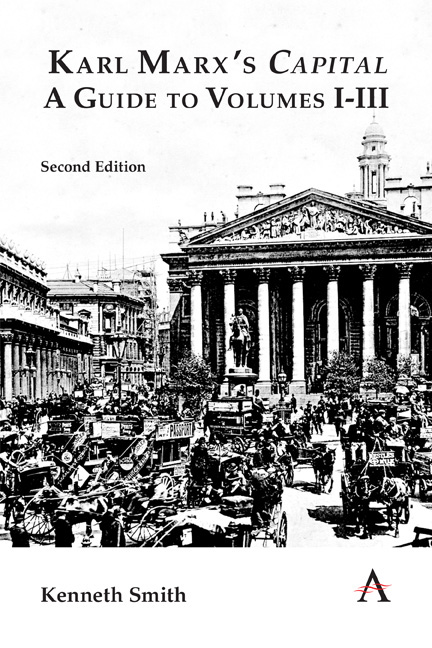Book contents
- Frontmatter
- Dedication
- Contents
- Preface to the Second Edition
- Introduction
- Part I The Development of the Capitalist Mode of Production
- Part II The Capitalist Mode of Production
- Part III The Underdevelopment of the Capitalist Mode of Production
- Part IV The Value Theory of Labour
- Conclusion to Part IV
- Conclusion
- Appendix: On Social Classes
- Notes
- Bibliography
- Index
- Frontmatter
- Dedication
- Contents
- Preface to the Second Edition
- Introduction
- Part I The Development of the Capitalist Mode of Production
- Part II The Capitalist Mode of Production
- Part III The Underdevelopment of the Capitalist Mode of Production
- Part IV The Value Theory of Labour
- Conclusion to Part IV
- Conclusion
- Appendix: On Social Classes
- Notes
- Bibliography
- Index
Summary
In the first half of this book we looked at the historical development of the capitalist mode of production and what might be said to be the preconditions for this (in Part I) and then at what Marx understood to be the conditions of the capitalist mode of production itself (in Part II). The question I consider in the second half of this study is to what extent the development of the pure capitalist mode of production itself might be said to have been undermined – or, as I think we might say in this connection, underdeveloped – as a result of trade between the more highly industrialized economies of Europe and North America during the late nineteenth and early twentieth centuries and other as yet non-capitalist modes of production at that time. In short, from now on, we will drop the closed economy model employed by Marx in Part I of this study and examine the effects of trade not just on the development of the non-capitalist world – i.e. through capitalist colonialism or imperialism – but on the development of the CMP itself. Specifically, we will now look at the circulation of capital – an issue we have so far almost entirely neglected – and in particular at the differences between the circulation of two very different types of capital, the more highly developed form of merchant's capital and the circuit of industrial capital generally. The main question we will be considering here is whether the development of finance capital and imperialism signified a higher stage in the development of capitalism (as both Rudolf Hilferding and Lenin believed), or whether both of these development would be better regarded as a more highly developed form of mercantile capitalism and therefore might be said to signify a step backward in the development of the capitalist mode of production itself.
- Type
- Chapter
- Information
- Publisher: Anthem PressPrint publication year: 2021



